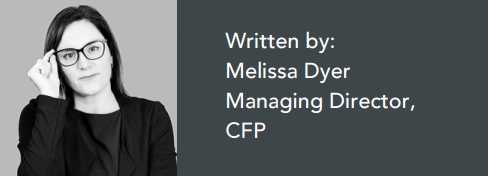2023 has been a bumper year for women’s sport in general.
Following an exceptionally well-organised FIFA Women’s World Cup in Australia and New Zealand, and the Netball World Cup in Cape Town, together with the recent official announcement that the Proteas women will earn the same match fees as the Proteas men; it certainly feels as though we are making great progress in recognition of women in sports, long may this continue!
I love that each August – in line with our celebration of Women’s Day – we shine a light on the importance of women. We are different, our needs are different, our financial aspirations are different and the value of starting early has never been greater.
Financial Planning for Everyone
I was raised in Durban in a loving, very middle-class home with my sisters, my mother worked hard alongside my father throughout our childhoods. She grew up in Zambia, was shipped off to boarding school in the Eastern Cape at a very young age and ended up leaving school in standard eight (grade 10) to attend a technical training college where she studied bookkeeping. Together with a full-time job, she always had a side hustle going to make sure we could meet our financial needs, and she never (or at least not often) dropped the ball as an involved, supportive mom. I thought this was the norm, I thought all mothers ran the budgets and played an active role in managing the family finances. I was wrong.
Throughout my career in financial services, I have felt that as an industry we have done a poor job of simplifying what financial planning is and why it is needed. It is daunting and often results in people staying or stepping away from this critical component of successful living. At Harbour Wealth, since we opened our doors ten years ago, we have tried to simplify and declutter the otherwise jumbled and confusing financial horizon, to better educate and inform our clients of their important personal financial planning journey.
This education is necessary to reach a far wider audience. Although the statistics are improving, which is encouraging, the gender pay gap – where men are paid more than women despite having the same level of education and experience – has not closed. Women on average earn 74% of what their male counterparts do in America, and 72% in South Africa.
Currently, the facts stack up as follows:
On average women earn less, tend to live longer than men, and have fewer working years to accumulate wealth due to family commitments such as having a baby, or looking after elderly family members. This means women need to invest more and start earlier.
It is vital for as many people as possible to be educated and informed in relation to making important financial decisions. Such as, knowing how to manage risk, to ensure appropriate returns can be made to support their pre- and post-retirement financial goals.
It’s a tough ask!
Financial well-being plays a significant role in every aspect of our lives.
Encouraging conversations about personal finance can lead to several positive outcomes:
- Empowerment: By openly discussing financial matters we become more informed and empowered decision-makers regarding our savings. This empowerment can extend to all areas of our lives, including family planning and career choices.
- Long-term Goals: Open discussions about finances allow us to achieve our long-term goals, such as buying a home, funding education and saving for retirement. These goals are often interconnected with family aspirations.
- Risk Management: Having open conversations about finances can lead to better risk management and financial planning. This is especially important during major life events like starting a family, where unexpected expenses can arise.
- Breaking Taboos: By breaking the taboo surrounding financial discussions, society can collectively work toward dismantling the barriers that prevent people from seeking financial advice and education.
I was recently asked what advice I would give to anyone regarding their personal financial planning journeys.
The following are two practical steps one may take to secure better financial outcomes:
- Pay yourself first: I advise my clients to set up recurring investment debit orders to run as soon after receiving one’s salary as possible – to ‘pay yourself first’. Before the added household and family expenses are deducted. Not only is it a great investment discipline, but it also mitigates the risk of you becoming a financial burden on your family in later life.
- Find a trusted, experienced and independent Certified Financial Planner (CFP) who can create a bespoke financial plan to cater to your unique needs. Be cost savvy, ask as many questions as you need to gain security and understanding. Don’t sign for anything you don’t fully understand. Transparency is key. It is your hard-earned money you are trusting someone to manage, everyone deserves professional and non-conflicted advice. If any doubt prevails, seek a second opinion before making any official and binding decisions.
We need to encourage open dialogue about the importance of financial planning so we can support the important people and relationships in our lives.
Gone are the days of feeling uncertain about creating a clear financial plan. By properly structuring our plan early on, we can achieve our goals more efficiently. This will be particularly beneficial for those who have been previously marginalised. Let us make the most of our time by taking control of our finances.



